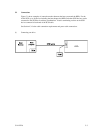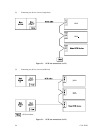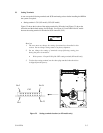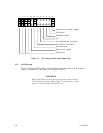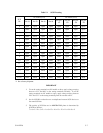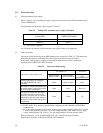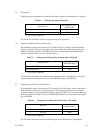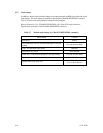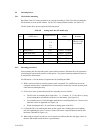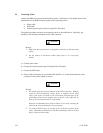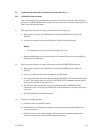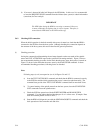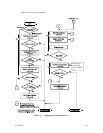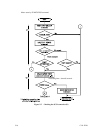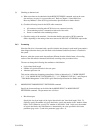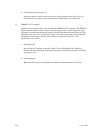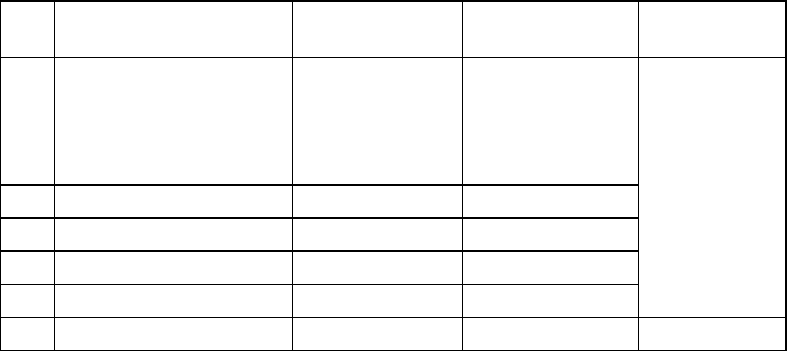
C141-E226 5-11
5.4 Mounting Drives
5.4.1 Check before mounting
Reconfirm if the CN2 setting terminal is set correctly according to Table 5.8 before mounting the
NP model drives in the system cabinet. For the CN2 setting terminal location, see Section 5.3.
The NC model drives do not require the following check.
Table 5.8 Setting check list (NP model only)
No.
Setting contents
(Check item)
Pin pair on CN2
Check Remarks
1 SCSI ID 1/2
3/4
5/6
7/8
(SCSI ID = __) Upper bus
(DB 8 to 15 PI)
not connected
2 Write protect 9/10 Short Open
3 Motor start mode 11/12 Short Open
4 Force Narrow 13/14 Short Open
5 Force single ended 15/16 Short Open
6 Terminator power supply 23/24 Short Open
5.4.2 Mounting procedures
Since mounting the drive depends on the system cabinet structure, determine the work procedures
considering the requirements specific to each system. The general mounting method and items to
be checked are shown below.
See Subsection 4.1 for the details of requirements for installing the HDD.
1) With a system to which an external operator panel is mounted, if it is difficult to access the
connector after the drive is mounted on the system cabinet, connect the external operator panel
cable before mounting the drive.
2) Fix the drive in the system cabinet with four mounting screws as follows:
• The drive has 10 mounting holes (both sides: 3 × 2, bottom: 4). Fix the drive by using
four mounting holes of both sides of the drive or the bottom. (See Figure 4.5)
• Use mounting screws of which lengths inside the drive mounting frame are 5.0 mm or less
when the screws are tightened (see Figure 4.4).
• When mounting the drive, be careful not to damage parts on the PCA.
3) Confirm the DE is not touching the frame on the system side excluding the screw installing
part after tightening the screws. At least 2.5mm of clearance is required between the DE and
the frame. (Indicated in Figure 4.4)
4) When using an electric screwdriver, use an electric screwdriver that does not apply a force on
the drive that would exceed the drive’s specifications.



